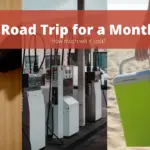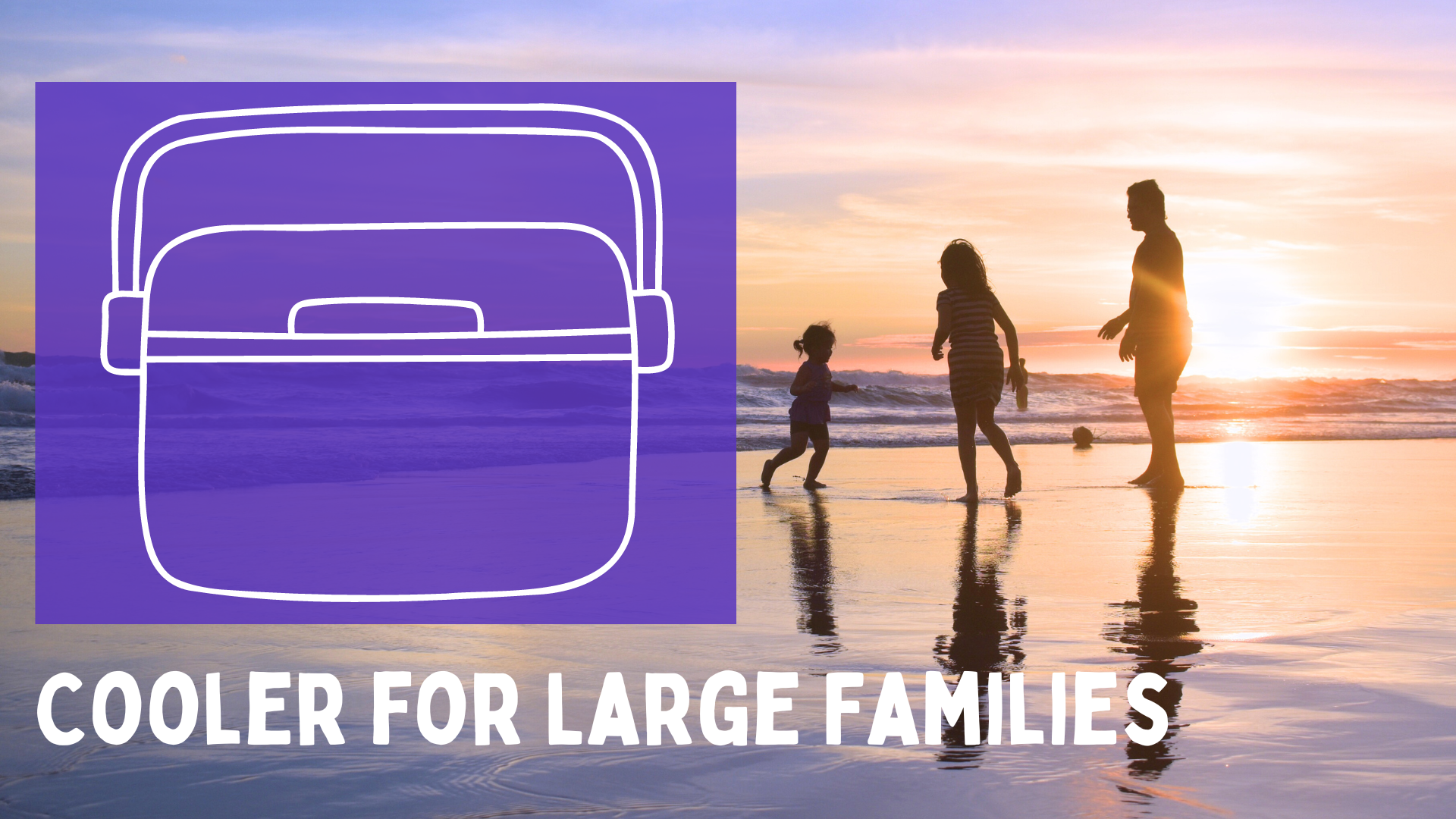My family likes to travel on a budget, so we usually drive our own car, but after asking a bunch of other road trippers, I am wondering if it really is cheaper to drive my own car.
Driving your own car may seem to be the cheaper option, but the cost of maintenance, depreciation, fuel efficiency and roadside assistance may make renting the cheaper option for long road trips.
After crunching some numbers, I created a simple helpful quiz, you can find below, to help you decide if you should rent or drive your own.
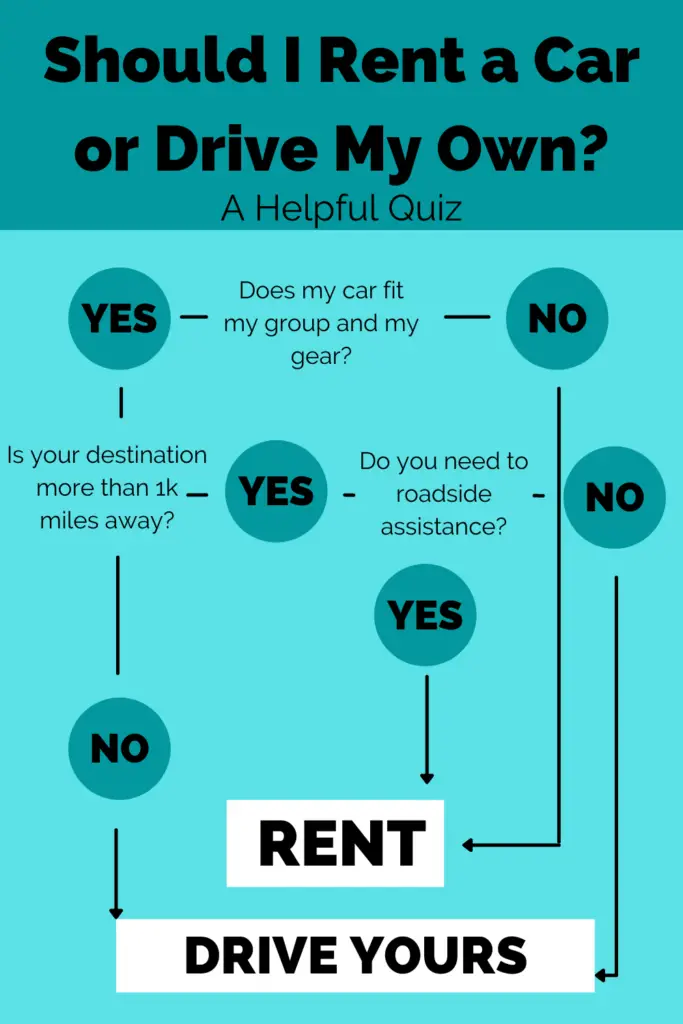
What do experienced travelers do?
I asked a group of road trippers if they prefer to rent a car or drive their own on a road trip, and I was not expecting how helpful and insightful the answers were.
First for the big question, which do you prefer? Here is what they said;
So most experienced road trippers prefer to rent. A lot of them noted that rental prices fluctuate and summer is a time when they spike, so it may not be a great time to rent.
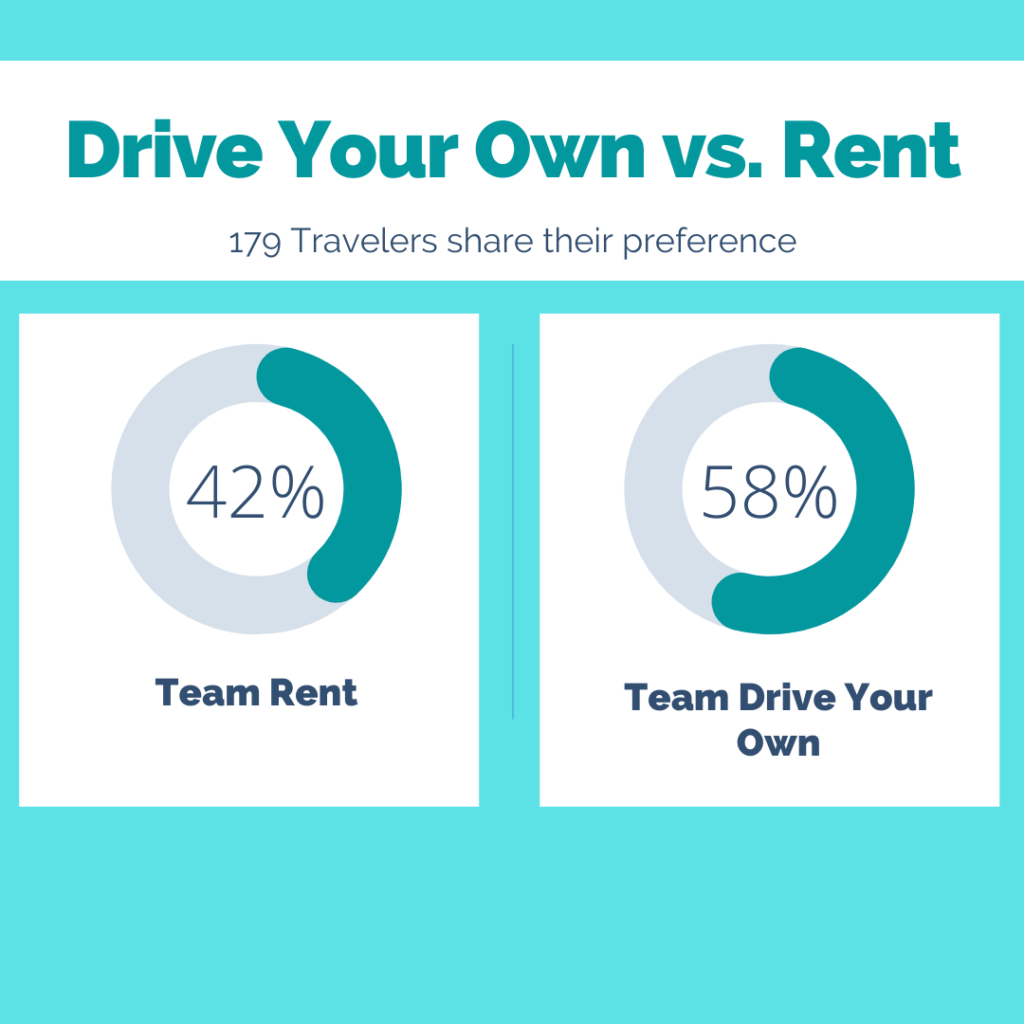
Why do most road trippers prefer to rent?
The answers and insights here were very valuable!
As a general rule, experienced road trippers prefer to rent because of the better gas mileage in a newer rental, the availability of a replacement car in case of a breakdown, and they prefer to put that wear and tear on a rental, rather than their own car.
Wear and Tear
Wear and tear on a vehicle means the cost of driving your car. When you are considering the cost of wear and tear you want to think about all the costs of maintenance on your car. Don’t forget:
- Oil Changes
- Insurance
- Taxes
- Repairs
- Tire Wear
- Break Wear
All of these costs are small when spread out over the course of a year, but when you are considering a significant trip, over 500 miles, or over 10 hours, these costs spike.
You can calculate it by adding all the costs above and dividing it by the number of miles you typically drive in a year, and that will give you an average cost per mile. I created a handy chart in this post that will give you a quick estimate.
Depreciation
When you add miles to your car it loses value. You know that a low mileage car is more valuable to you when you are shopping, so you can extend this to know that if you add miles to your car, it loses value.
This is most pronounced in newer cars.
If you own a newer car, adding lots of miles will decrease the value. A car less than 5 years old that you intend to sell, should not be driven on road trips more than 500 miles. I am not the rental police, you can decide what you would like to do, but this is a good rule to follow.
Roadside Assistance
If you go on a lot of road trips, you have probably found yourself stranded on the side of the road.
If you are in a rental, and it breaks down, you just get a new car.
Many road trippers mentioned this as a reason they rent. If you are driving your own car, and it breaks down, you are stuck. You lose time and you will need to stay with the car for the duration of the repair, or get a rental and come back for it!
If you choose not to rent, and do not feel very comfortable changing a tire on the highway, get roadside assistance before any road trip. AAA is the most well known provider, but your insurance may also offer roadside assistance as a benefit, so make sure you have all the information about that program.
Cost of Driving Your Own Car
When you rent a car, there is an obvious cost, but how do you calculate the cost of a road trip in your own car?
Check out this post about wear and tear per mile.
Find your own vehicle’s cost per mile and multiply it by the number of miles on your planned trip. Add the cost of an oil change and tune up. This will give you a good estimate of the cost of driving your own car on your trip.
Compare that number to the cost of renting a car for your trip. You may be surprised, like I have been, to find that the rental is cheaper!
Cost of Renting
When you are making your rental plans, you can start your search online. Most sites like Kayak and Trip Advisor will give you a fair comparison of what is available, but once you choose an agency go to their website. You need to know all their policies and regulations.
Make sure to include all the costs:
- Gas charges
- Drop off fee
- Insurance fees
- Cleaning fee (hello fast food in the car!)
- Damage fee
- Admin Fee
- Charges for extra fees
And remember, many rentals have limitations. Rental cars can not be driven to Mexico or Canada, cannot be driven by drivers under 21 without an added fee, and others. So be sure to make yourself familiar with any rules you may be signing.
I created a few charts comparing rental companies policies in this post about renting a van for your family road trip.
When should I rent a car for a road trip?
There are some situations where the answer should be very straightforward.
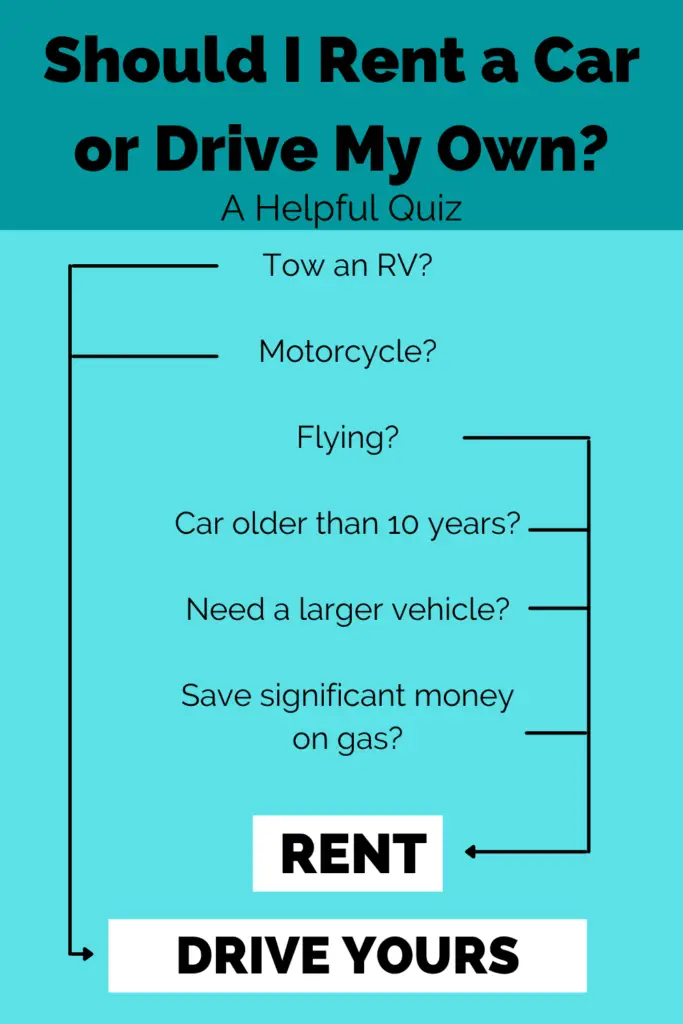
If you plan to tow an RV, Four Wheeler, or motorcycle, it is best to drive your own vehicle.
If you are flying, you will just need to rent.
If your trip is based around getting those stickers on your car, take your car!
If your vehicle is just not very fuel efficient, or is very old, RENT!
There are great reasons for both, just make the best choice for your trip!
Can’t find a rental car?
I leave you with my best hack of all time.
If you have decided that renting a car is the best for your trip, but you cannot find one;
Rent a U-Haul.
This is the best hack I have ever seen! It is often even cheaper than a rental car!
They are set up for people to drive longer distances, there are plenty of locations and talk about storage space!
Of course, there are limitations. Mostly, its passengers. A U-Haul can only carry 2 passengers. If you are traveling alone, or with only 2 people, check into renting a U-Haul for your road trip. It would make a great story!
I hope this was a helpful post for those planning big road trips. I know we will look at renting next time we visit family in Missouri.

